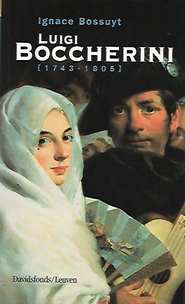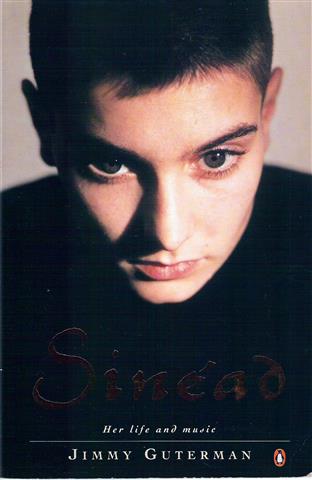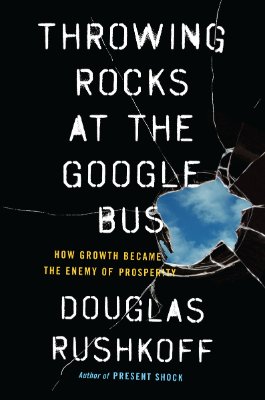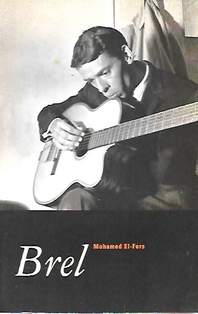



Search
Search our 7.980 News Items
CATEGORIES
We found 32 books in our category 'MUSIC'
We found 7 news items
We found 32 books


Die Matthäus passion. Ingeleid door L. Van Strien. Verlucht met tekeningen naar Albrecht Dürer.
Hardcover, gebonden, 8vo, 68 pp.
BACH Johann Sebastian@ wikipedia
€ 10.0

Leuven
Davidsfonds
2002
ITA 
condition: Very good/Très bel état/Sehr gut/Zeer goed
book number: 201808150110
Luigi Boccherini (1743-1805)
Pb met flappen, in-8, 70 pp., bibliografie, index.
BOSSUYT Ignace@ wikipedia
€ 15.0

De Koninginnewedstrijd: Gesprekken met 18 Elisabethlaureaten [old book number 19870147]
Hardcover, large in-8, 316 pp., portretfoto's van de laureaten. In de bijlagen: reglement van deze prestigieuze wedstrijd; samenstelling van de jury's; deelnemers sedert 1951 (piano, viool); palmares.
BROUWERS Fred@ wikipedia
€ 10.0

Petits chants
Broché, in-8, 95 pp.
BRUNFAUT Marie@ wikipedia
€ 10.0

De walsmachine, Wenen en de kunst van het zweefvliegen
Hardcover, 223 pp., illustraties en foto's in ZW (enkele in kleur).
BRYS Edwin, VAN MOLLE Bert @ wikipedia
€ 10.0

Antwerpen
Stad Antwerpen/Rubenshuis
1977
BEL 
condition: Very good
book number: 19770125
Paradisus Musicus - Muziek en samenleving in Rubens' tijd
Tentoonstelling 31 augustus - 16 oktober 1977. Paperback 115 pp. Illustrations, facsimile in BW. Translations in E, F, D in the last part.
COLL@ wikipedia
€ 15.0

Het Belgisch hitboek. 45 jaar hits in Vlaanderen
Paperback, in-8, 727 pp., index/register.
COLLIN Robert@ wikipedia
€ 15.0
![Book cover 19790136: DE BIE D. | Prinselijk speelgoed voor een privaat koninkrijk [fonograaf, grammofoon, muziekdozen, orgels, ...]](https://www.mers.be/COVERS_MERS/19790136.jpg)
s.l.
privaat beheer De Bie
1979
BEL 
condition: Frontispiece is uitgescheurd. Verder in goede staat
book number: 19790136
Prinselijk speelgoed voor een privaat koninkrijk [fonograaf, grammofoon, muziekdozen, orgels, ...]
Pb, in-8, 116 pp., rijkelijk geïllustreerd met ZW-foto's. Bevat 5 hoofdstukken: 1) Fonograaf en grammofoon; 2) muziekdozen of speeldozen; 3) de snaarinstrumenten; 4) de instrumenten met doorslaande tongen; 5) de orgels.
DE BIE D.@ wikipedia
€ 15.0

Strijdliederen
Hardcover, Pocket, 70 pp., index.
DE MAN Yvonne @ wikipedia
€ 20.0

De pre historie
Paperback, in-8, 318 pp., illustraties, bibliografische noten, bibliografie, index/register.
DE PRE Guy@ wikipedia
€ 15.0

Leuven
E.P.O'Connor
s.d.
BEL 
condition: Good, kaft vergeeld
book number: 38926
Viaticum. Eucharistisch spel.
Softcover, large 4to, 21 pp., muziekpartituur.
DELAFAILLE J., PRIMS Floris@ wikipedia
€ 20.0
Brel
Pb, in-8, 128 pp., ill.
Citaat: "Maar de volwassenen blazen droom na droom op, ze stropen dieren, onderwerpen medemensen, voeren koude en hete oorlogen en leren wiskunde om een atoombom te kunnen fabriceren." (blz. 5)
Citaat: "Maar de volwassenen blazen droom na droom op, ze stropen dieren, onderwerpen medemensen, voeren koude en hete oorlogen en leren wiskunde om een atoombom te kunnen fabriceren." (blz. 5)
EL-FERS Mohamed @ wikipedia
€ 10.0

Gent
Scoop
1998
BEL 
condition: Ex-library. Usual stamps. Very good.
book number: 19980177
Brel
Citaat: "Maar de volwassenen blazen droom na droom op, ze stropen dieren, onderwerpen medemensen, voeren koude en hete oorlogen en leren wiskunde om een atoombom te kunnen fabriceren." (blz. 5)
EL-FERS Mohamed @ wikipedia
€ 10.0

Jazz. Geschiedenis. Instrumenten. Musici.
Hardcover verzamelkaft met losse delen, folio, 148 pp. Rijkelijk geïllustreerd in kleur.
FORDHAM John@ wikipedia
€ 15.0

London
Penguin
1991
IRL
condition: Goed/Bon état/Good/Gut
book number: 19910057
Sinéad. Her life and music.
Pb 149 pp. Photos in BW. With the discography. 1st. Sinéad O'Connor, °Dublin 8/12/1966 +London, 26/7/2023
GUTERMAN Jimmy@ wikipedia
€ 10.0

Orgeln in aller Welt. Organs of the world. Orgues du monde entier.
Softcover, pb, 4to, 112 pp, mit zhlr. Abb.
HAACKE Walter@ wikipedia
€ 10.0

Amsterdam
Scheltens & Giltay
1905
AUT
condition: Goed/Bon état/Good/Gut
book number: 19050027
Wolfgang Amadeus Mozart; zijne naaste omgeving en zijne werken
hardcover, 137 pp., gegraveerd portret van Mozart, stamboom, uitslaande partituur van 'Das Veilchen', s.d. (ca. 1905).
HARTOG Jacques@ wikipedia
€ 10.0

Bach's Matthäuspassion als belijdend geestelijk drama
Pocket, 96 pp. Casper Höweler (Amsterdam, 15 mei 1897 - Blaricum, 19 april 1969) was een Nederlands musicoloog.
HÖWELER Casper@ wikipedia
€ 15.0

Gent
Uitgeversfirma Vanderpoorten
BEL 
condition: Slechte staat
book number: 33706
De notenleer door het lied, Progressief Handboek
Hardcover, gebrocheerd, 8vo, 126 pp.
HULLEBROECK Emiel@ wikipedia
€ 10.0

Met vruechden willen wi singhen. Volksliederen voor gemengd koor.
Hardcover,linnen, gebrocheerd, 8vo, 90 pp.
INDEKEU Paschal@ wikipedia
€ 10.0
We found 7 news items
ChatGPT heeft 2,5 maand na de lancering al 1 miljoen gebruikers
ID: 202301311127
The conversational AI bot ChatGPT, that can produce human-like text, has been put to all kind of uses, from writing short stories, prose, music and term papers to programming basic code, solving math problems and doing translations. Other popular online services have generally taken much longer to hit the one million user mark. Instagram is among those which come the closest. The social media service achieved one million users in just 2.5 months, albeit measured via downloads of the app. Spotify and Dropbox also achieved the feat quickly - in five and seven months, respectively.
Src: Statista
Src: Statista

Learning to Code Yields Diminishing Returns - The future of jobs - A review of Rushkoff's book
ID: 201604011318

Looking for job security in the knowledge economy? Just learn to code. At least, that’s what we’ve been telling young professionals and mid-career workers alike who want to hack it in the modern workforce—in fact, it’s advice I’ve given myself. And judging by the proliferation of coding schools and bootcamps we’ve seen over the past few years, not a few have eagerly heeded that instruction, thinking they’re shoring up their livelihoods in the process.
Unfortunately, many have already learned the hard way that even the best coding chops have their limits. More and more, "learn to code" is looking like bad advice.
CODING CAN’T SAVE YOU
Anyone competent in languages such as Python, Java, or even web coding like HTML and CSS, is currently in high demand by businesses that are still just gearing up for the digital marketplace. However, as coding becomes more commonplace, particularly in developing nations like India, we find a lot of that work is being assigned piecemeal by computerized services such as Upwork to low-paid workers in digital sweatshops.
This trend is bound to increase. The better opportunity may be to use your coding skills to develop an app or platform yourself, but this means competing against thousands of others doing the same thing—and in an online marketplace ruled by just about the same power dynamics as the digital music business.
Besides, learning code is hard, particularly for adults who don’t remember their algebra and haven’t been raised thinking algorithmically. Learning code well enough to be a competent programmer is even harder.
Although I certainly believe that any member of our highly digital society should be familiar with how these platforms work, universal code literacy won’t solve our employment crisis any more than the universal ability to read and write would result in a full-employment economy of book publishing.
It’s actually worse. A single computer program written by perhaps a dozen developers can wipe out hundreds of jobs. As the author and entrepreneur Andrew Keen has pointed out, digital companies employ 10 times fewer people per dollar earned than traditional companies. Every time a company decides to relegate its computing to the cloud, it's free to release a few more IT employees.
Most of the technologies we're currently developing replace or obsolesce far more employment opportunities than they create. Those that don’t—technologies that require ongoing human maintenance or participation in order to work—are not supported by venture capital for precisely this reason. They are considered unscalable because they demand more paid human employees as the business grows.
TRAINING OUR ROBO-REPLACEMENTS
Finally, there are jobs for those willing to assist with our transition to a more computerized society. As employment counselors like to point out, self-checkout stations may have cost you your job as a supermarket cashier, but there’s a new opening for that person who assists customers having trouble scanning their items at the kiosk, swiping their debit cards, or finding the SKU code for Swiss chard. It’s a slightly more skilled job and may even pay better than working as a regular cashier.
But it’s a temporary position: Soon enough, consumers will be as proficient at self-checkout as they are at getting cash from the bank machine, and the self-checkout tutor will be unnecessary. By then, digital tagging technology may have advanced to the point where shoppers just leave stores with the items they want and get billed automatically.
For the moment, we’ll need more of those specialists than we’ll be able to find—mechanics to fit our current cars with robot drivers, engineers to replace medical staff with sensors, and to write software for postal drones. There will be an increase in specialized jobs before there's a precipitous drop. Already in China, the implementation of 3-D printing and other automated solutions is threatening hundreds of thousands of high-tech manufacturing jobs, many of which have existed for less than a decade.
American factories would be winning back this business but for a shortage of workers with the training necessary to run an automated factory. Still, this wealth of opportunity will likely be only temporary. Once the robots are in place, their continued upkeep and a large part of their improvement will be automated as well. Humans may have to learn to live with it.
HIGH-TECH UNEMPLOYMENT
This conundrum was first articulated back in the 1940s by the cybernetics pioneer Norbert Wiener, whose work influenced members of the Eisenhower Administration to start worrying about what would come after industrialism. By 1966, the United States convened the first and only sessions of the National Commission on Technology, Automation, and Economic Progress, which published six (mostly ignored) volumes sizing up what would later be termed the "post-industrial economy."
Today, it’s MIT’s Erik Brynjolfsson and Andrew McAfee who appear to be leading the conversation about technology’s impact on the future of employment—what they call the "great decoupling." Their extensive research shows, beyond reasonable doubt, that technological progress eliminates jobs and leaves average workers worse off than they were before.
Yet it’s hard to see this great decoupling as a mere unintended consequence of digital technology. It is not a paradox but the realization of the industrial drive to remove humans from the value equation. That’s the big news: The growth of an economy does not mean more jobs or prosperity for the people living in it.
"I would like to be wrong," a flummoxed McAfee confided in the same article, "but when all these science-fiction technologies are deployed, what will we need all the people for?"
When technology increases productivity, a company has a new excuse to eliminate jobs and use the savings to reward its shareholders with dividends and stock buybacks. What would've been lost to wages is instead turned back into capital. So the middle class hollows out, and the only ones left making money are those depending on the passive returns from their investments.
It turns out that digital technology merely accelerates this process to the point where we can all see it occurring. It's just that we haven't all taken notice yet—we’ve been busy coding.
"It’s the great paradox of our era," Brynjolfsson explained to MIT Technology Reviewin 2013. "Productivity is at record levels, innovation has never been faster, and yet at the same time, we have a falling median income and we have fewer jobs. People are falling behind because technology is advancing so fast and our skills and organizations aren’t keeping up."
[This post is based on Douglas Rushkoff’s new book, Throwing Rocks at the Google Bus: How Growth Became the Enemy of Prosperity and originally appeared in Fast Company.]

27 november 2015: Press Release of the Kurdistan National Congress: Stop Turkish Aggression!
ID: 201511271624
 Stop Turkish Aggression!
Stop Turkish Aggression!November 23, 2015
To The International Democratic Opinion: Stop Turkish Aggression!
While the International Coalition, democracies and many decent people around the world are preoccupied with ISIS´s terrorist activities far beyond Syria and Iraq, Turkey is deepening its war against the Kurdish people as never before. Turkey’s war against the indigenous people in the Middle East comprises prohibiting the mother-tongue, culture and music of these people. Displacements, confiscating properties, imprisonment, persecution and committing preplanned crimes are characteristics of Turkey’s outright war.
On July 23rd Turkey declared that it would become a part of the International Coalition against ISIS, but unfortunately Turkey’s overall support for ISIS has since been intensified rather than reduced. Instead of fighting ISIS, Turkey started to attack Kurdish guerrilla forces, the only forces which are fighting and have fought successfully against ISIS/DAESH.
Turkey has been fighting Kurds despite the Kurdish people’s wish for peace and a political solution. The PKK’s leadership has extended the hand of peace and reconciliation to the Turkish people, presented a road map and concrete models for political solutions and made the proposal for countries and organizations such as the US and EU to mediate. In addition, the HPG (Kurdistan People’s Protection Force) has announced and put into practice many unilateral ceasefires, but Turkey has so far refused to enter into a bilateral ceasefire.
Turkish aggresssion, which intensifies day by day, is not only through its support for ISIS.
Repeated suicide bombs against Kurdish peaceful demonstrators, even in Ankara, gunning down children, women and the elderly, destroying Kurdish cemeteries, burning Kurdish shops and homes and enforcing arbitrary curfews are among the Turkish atrocities. The Turkish special military forces [“police”] are everywhere in Kurdistan. These forces are supported by paramilitary gangs whose identities are unknown. They use tanks, armored vehicles, cannons and helicopters. Kurdish cities such as Diyarbakır, Cizre, Gever, Şırnak, Silopi, Hakkâri and Van are turned into war-zones. The city of Nuseiybin is under Turkish military siege now for the 10th day. Only in Nuseiybin at least 8 civilians have been killed.
At the same time Turkey is attacking Rojawa Kurds (Syrian Kurds), specifically in the areas of Gire Spi and East of the Euphrates river. Turkey wants to provoke a war with Kurds inside Syria too. Its aim is to find “security” excuses to go inside Rojawa (Syria´s territory) and occupy an buffer area.
Turkey is denying the existence of the Kurdish people and waging an extermination war through assimilation and barbaric oppressive policies and ignoring the Kurds’ cry for peace. The AKP government has a problem-focusing approach not a problem-solving perspective, and therefore it does not respond for calls for dialogue and negotiation.
The Kurdish people’s call for peace, democracy and justice must not go unheard. We call on everyone who believes in peace, stability, friendship, justice and democracy to support Kurds and make a stand against this brutal campaign waged to suppress Kurds into silence and surrender. We ask everyone to contribute to a peaceful solution.
Rebwar Rashed
Co-Chairman of the Kurdistan National Congress/ KNK
November 23nd, 2015

PCM Uitgevers en De Persgroep sluiten overeenkomst
ID: 200903031117
3/03/09 - 11u17
PCM Uitgevers BV en De Persgroep NV (de uitgever van deze website) hebben een principeovereenkomst getekend na overleg met aandeelhouders van PCM. De overeenkomst houdt in dat PCM nieuwe aandelen zal plaatsen bij De Persgroep ter waarde van 100 miljoen euro, waardoor De Persgroep een belang van 51 procent in PCM neemt. Dankzij deze kapitaalverhoging kan PCM zijn schuldpositie reduceren en de strategie van de onderneming financieren.
PCM heeft de dagbladen De Volkskrant, NRC Handelsblad, Het Algemeen Dagblad, nrc.next en Trouw in huis. Daarnaast is het bedrijf ook eigenaar van PcM Algemene Uitgeverijen die zes boekenuitgeverijen overkoepelt waaronder de Belgische Standaard Uitgeverij.
Onderdeel De Persgroep
PCM blijft een onderneming naar Nederlands recht die gaat functioneren als onderdeel van De Persgroep. De bestaande aandeelhouders - Stichting Democratie en Media, Stichting de Volkskrant, Stichter ter Bevordering van de Christelijke Pers en Stichting Lux et Libertas - behouden hun prioriteitsaandelen in de dagbladtitels en hun doelstellingen met betrekking tot de pluriformiteit, continuïteit en de identiteit worden gerespecteerd, luidt het nog. De transactie kan in de loop van mei 2009 worden afgerond.
Ook Q Music en Parool
"Voor onze groep die actief wil zijn in Nederland en België is dit een belangrijke strategische stap", aldus Christian Van Thillo, gedelegeerd bestuurder van De Persgroep. "Wij zien en erkennen de grote maatschappelijke waarde die PCM en zijn uitgaven in Nederland vertegenwoordigen. Wij zijn dan ook trots om de samenwerking met PCM en zijn werkmaatschappijen te mogen aangaan en hen te helpen bij het realiseren van hun ambities. Het is onze gezamenlijke ambitie om de activiteiten van het concern ook te verbreden naar andere media. Om die reden zullen in een latere fase ook de bestaande Nederlandse activiteiten van De Persgroep - Het Parool en Q Music - worden ingebracht in PCM."
PCM en De Persgroep hebben ook afgesproken dat zorgvuldig gekeken zal worden naar de vraag of het strategisch beter is om één van de dagbladtitels te vervreemden, in het belang van de concurrentiekracht en de kwaliteit van die titels.
PCM Uitgevers BV en De Persgroep NV (de uitgever van deze website) hebben een principeovereenkomst getekend na overleg met aandeelhouders van PCM. De overeenkomst houdt in dat PCM nieuwe aandelen zal plaatsen bij De Persgroep ter waarde van 100 miljoen euro, waardoor De Persgroep een belang van 51 procent in PCM neemt. Dankzij deze kapitaalverhoging kan PCM zijn schuldpositie reduceren en de strategie van de onderneming financieren.
PCM heeft de dagbladen De Volkskrant, NRC Handelsblad, Het Algemeen Dagblad, nrc.next en Trouw in huis. Daarnaast is het bedrijf ook eigenaar van PcM Algemene Uitgeverijen die zes boekenuitgeverijen overkoepelt waaronder de Belgische Standaard Uitgeverij.
Onderdeel De Persgroep
PCM blijft een onderneming naar Nederlands recht die gaat functioneren als onderdeel van De Persgroep. De bestaande aandeelhouders - Stichting Democratie en Media, Stichting de Volkskrant, Stichter ter Bevordering van de Christelijke Pers en Stichting Lux et Libertas - behouden hun prioriteitsaandelen in de dagbladtitels en hun doelstellingen met betrekking tot de pluriformiteit, continuïteit en de identiteit worden gerespecteerd, luidt het nog. De transactie kan in de loop van mei 2009 worden afgerond.
Ook Q Music en Parool
"Voor onze groep die actief wil zijn in Nederland en België is dit een belangrijke strategische stap", aldus Christian Van Thillo, gedelegeerd bestuurder van De Persgroep. "Wij zien en erkennen de grote maatschappelijke waarde die PCM en zijn uitgaven in Nederland vertegenwoordigen. Wij zijn dan ook trots om de samenwerking met PCM en zijn werkmaatschappijen te mogen aangaan en hen te helpen bij het realiseren van hun ambities. Het is onze gezamenlijke ambitie om de activiteiten van het concern ook te verbreden naar andere media. Om die reden zullen in een latere fase ook de bestaande Nederlandse activiteiten van De Persgroep - Het Parool en Q Music - worden ingebracht in PCM."
PCM en De Persgroep hebben ook afgesproken dat zorgvuldig gekeken zal worden naar de vraag of het strategisch beter is om één van de dagbladtitels te vervreemden, in het belang van de concurrentiekracht en de kwaliteit van die titels.

EDWARD CRANKSHAW IS DEAD AT 75; AUTHOR ON SOVIET AND HAPSBURGS
ID: 198412041025
EDWARD CRANKSHAW IS DEAD AT 75
By WOLFGANG SAXON
Published: December 4, 1984
Edward Crankshaw, one of the most respected authors on the Soviet Union and chronicler of the Hapsburgs, died last Thursday in his native Britain after what was described as a ''long and painful illness.'' He was 75 years old and lived in Hawkhurst, in rural Kent.
His death was reported Sunday in The Observer, the British weekly for which he kept watch on the Soviet scene starting in 1947. Mr. Crankshaw, who spurned the label of ''Kremlinologist,'' was regarded as Britain's premier journalistic expert on Soviet politics.
The author of about 20 books, including three novels, Mr. Crankshaw contribued a steady flow of prefaces, essays and articles to publications in Britain and the United States, including The New York Times. In addition, he commented on Soviet affairs for the BBC.
Difficult to place politically, Mr. Crankshaw reluctantly became a Soviet specialist when The Observer asked him to take the assignment after World War II, part of which he had spent in Moscow. One of the conclusions he had reached was that Kremlin policies must be seen as something that did not start with the Bolshevik takeover in 1917, but had ancient roots. He Avoided Speculation
Thus, Mr. Crankshaw avoided speculations about absences from the Kremlin wall at anniversary parades. Instead, his basic impressions had been formed when the Russians were fighting for survival, and he took heart from Stalin's evocations of historical ''Holy Russia.''
His political testament came in a preface written this year to a selection from his writings, ''Putting Up With the Russians.''
As a conservative dedicated to the survival of European civilization, he rejected the harsh tones adopted by President Reagan and his supporters, accusing them of trying to turn the Soviet Union into a pariah. Mr. Crankshaw viewed detente with some skepticism, but he insisted on the need for co- existence.
He was the author of ''Russia Without Stalin'' in 1956, regarding the changes in everyday life in the post- Stalin era. He also wrote ''Khrushchev's Russia'' (1960) and ''Khrushchev: A Career,'' published six years later.
He then wrote the introduction for ''Khrushchev Remembers,'' a rich compilation of comments, speeches, conversations and interviews by Nikita I. Khruschev, the Kremlin leader who denounced the Stalinist terror. 'Khrushchev Himself'
Mr. Crankshaw, who also contributed copious footnotes and commentary to the Khrushchev book, helped defend the book against doubters. He said that by ''style and content'' the words were ''Khrushchev himself, quite unmistakably speaking.'' His faith in the book's authenticity has come to be shared by most others since its publication in 1970.
Though ailing for many years, Mr. Crankshaw, a slight and courtly man, continued to write even in bed whenever he was unable to move about.
His last volume published in this country was ''Bismarck'' in 1982. Writing in The New York Times Book Review, George L. Mosse called the book ''a cautionary tale about political and military power'' that sees Bismarck's ''apparent success as a failure because the Iron Chancellor exalted the amoral concept of politics into a principle.''
Edward Crankshaw was born on Jan. 3, 1909, in rural Essex. As a boy, he often visited the London magistrate's court where his father, Arthur, worked as chief clerk. He attended Bishop's Stortford College but left early - hence his claim to having been largely self- taught.
Instead, Mr. Crankshaw went to the Continent to travel, and he lived in Vienna, becoming fluent in German. His Austrian years turned out to be formative ones for his mind as he watched democracy crumble in the new Austrian republic. They also instilled him with a passion for literature and music.
From Europe, he wrote for British publications subjects ranging from twelve-tone music to books, art and the theater. But he gave up journalism to write ''Joseph Conrad: Some Aspects of the Art of the Novel,'' a study of Conrad's methods and the novelist's art in general. Another book, ''Vienna: The Image of a Culture in Decline,'' appeared in 1938. Posted to Moscow in '41
In 1936, Mr. Crankshaw was commissioned into Britain's Territorial Army. In 1941, he was posted to Moscow as an intelligence officer, and he did all he could to understand the Russians, their history, national character and government.
Having also traveled on the periphery of the Soviet Union, he was asked by The Observer to return to journalism as its Russian expert. His early books on the subject were ''Britain and Russia'' (1945), ''Russia and the Russians'' (1947) and ''Russia by Daylight'' (1951).
A well-received history was The Shadow of the Winter Palace: The Drift to Revolution, 1825-1917 which appeared in 1976. Other well-received books were ''The Fall of the House of Hapsburg'' (1963) and ''The Hapsburgs'' (1971).
Of Mr. Crankshaw's ''Maria Theresa'' (1969), Thomas Lask wrote in his review in The New York Times, ''Mr. Crankshaw has managed in what is a model of compression and judicious selection to rescue Maria Theresa from the history books and to turn a monument into a warm and appealing woman.''
Mr. Crankshaw is survived by his wife, the former Clare Chesterton Carr.
By WOLFGANG SAXON
Published: December 4, 1984
Edward Crankshaw, one of the most respected authors on the Soviet Union and chronicler of the Hapsburgs, died last Thursday in his native Britain after what was described as a ''long and painful illness.'' He was 75 years old and lived in Hawkhurst, in rural Kent.
His death was reported Sunday in The Observer, the British weekly for which he kept watch on the Soviet scene starting in 1947. Mr. Crankshaw, who spurned the label of ''Kremlinologist,'' was regarded as Britain's premier journalistic expert on Soviet politics.
The author of about 20 books, including three novels, Mr. Crankshaw contribued a steady flow of prefaces, essays and articles to publications in Britain and the United States, including The New York Times. In addition, he commented on Soviet affairs for the BBC.
Difficult to place politically, Mr. Crankshaw reluctantly became a Soviet specialist when The Observer asked him to take the assignment after World War II, part of which he had spent in Moscow. One of the conclusions he had reached was that Kremlin policies must be seen as something that did not start with the Bolshevik takeover in 1917, but had ancient roots. He Avoided Speculation
Thus, Mr. Crankshaw avoided speculations about absences from the Kremlin wall at anniversary parades. Instead, his basic impressions had been formed when the Russians were fighting for survival, and he took heart from Stalin's evocations of historical ''Holy Russia.''
His political testament came in a preface written this year to a selection from his writings, ''Putting Up With the Russians.''
As a conservative dedicated to the survival of European civilization, he rejected the harsh tones adopted by President Reagan and his supporters, accusing them of trying to turn the Soviet Union into a pariah. Mr. Crankshaw viewed detente with some skepticism, but he insisted on the need for co- existence.
He was the author of ''Russia Without Stalin'' in 1956, regarding the changes in everyday life in the post- Stalin era. He also wrote ''Khrushchev's Russia'' (1960) and ''Khrushchev: A Career,'' published six years later.
He then wrote the introduction for ''Khrushchev Remembers,'' a rich compilation of comments, speeches, conversations and interviews by Nikita I. Khruschev, the Kremlin leader who denounced the Stalinist terror. 'Khrushchev Himself'
Mr. Crankshaw, who also contributed copious footnotes and commentary to the Khrushchev book, helped defend the book against doubters. He said that by ''style and content'' the words were ''Khrushchev himself, quite unmistakably speaking.'' His faith in the book's authenticity has come to be shared by most others since its publication in 1970.
Though ailing for many years, Mr. Crankshaw, a slight and courtly man, continued to write even in bed whenever he was unable to move about.
His last volume published in this country was ''Bismarck'' in 1982. Writing in The New York Times Book Review, George L. Mosse called the book ''a cautionary tale about political and military power'' that sees Bismarck's ''apparent success as a failure because the Iron Chancellor exalted the amoral concept of politics into a principle.''
Edward Crankshaw was born on Jan. 3, 1909, in rural Essex. As a boy, he often visited the London magistrate's court where his father, Arthur, worked as chief clerk. He attended Bishop's Stortford College but left early - hence his claim to having been largely self- taught.
Instead, Mr. Crankshaw went to the Continent to travel, and he lived in Vienna, becoming fluent in German. His Austrian years turned out to be formative ones for his mind as he watched democracy crumble in the new Austrian republic. They also instilled him with a passion for literature and music.
From Europe, he wrote for British publications subjects ranging from twelve-tone music to books, art and the theater. But he gave up journalism to write ''Joseph Conrad: Some Aspects of the Art of the Novel,'' a study of Conrad's methods and the novelist's art in general. Another book, ''Vienna: The Image of a Culture in Decline,'' appeared in 1938. Posted to Moscow in '41
In 1936, Mr. Crankshaw was commissioned into Britain's Territorial Army. In 1941, he was posted to Moscow as an intelligence officer, and he did all he could to understand the Russians, their history, national character and government.
Having also traveled on the periphery of the Soviet Union, he was asked by The Observer to return to journalism as its Russian expert. His early books on the subject were ''Britain and Russia'' (1945), ''Russia and the Russians'' (1947) and ''Russia by Daylight'' (1951).
A well-received history was The Shadow of the Winter Palace: The Drift to Revolution, 1825-1917 which appeared in 1976. Other well-received books were ''The Fall of the House of Hapsburg'' (1963) and ''The Hapsburgs'' (1971).
Of Mr. Crankshaw's ''Maria Theresa'' (1969), Thomas Lask wrote in his review in The New York Times, ''Mr. Crankshaw has managed in what is a model of compression and judicious selection to rescue Maria Theresa from the history books and to turn a monument into a warm and appealing woman.''
Mr. Crankshaw is survived by his wife, the former Clare Chesterton Carr.

Woody Guthrie (14/7/1912 - 3/10/1967). R.I.P.
ID: 196710031605
Woodrow Wilson "Woody" Guthrie (/ˈɡʌθri/; July 14, 1912 – October 3, 1967) was an American singer-songwriter and musician whose musical legacy includes hundreds of political, traditional, and children's songs, along with ballads and improvised works. He frequently performed with the slogan This machine kills fascists displayed on his guitar. His best-known song is "This Land Is Your Land". Many of his recorded songs are archived in the Library of Congress.[1] Songwriters such as Bob Dylan, Phil Ochs, Johnny Cash, Bruce Springsteen, Robert Hunter, Harry Chapin, John Mellencamp, Pete Seeger, Andy Irvine, Joe Strummer, Billy Bragg, Jerry Garcia, Jay Farrar, Bob Weir, Jeff Tweedy, Bob Childers, Sammy Walker and Tom Paxton have acknowledged Guthrie as a major influence.
This Land Is Your Land
Words and Music by Woody Guthrie
This land is your land This land is my land
From California to the New York island;
From the red wood forest to the Gulf Stream waters
This land was made for you and Me.
As I was walking that ribbon of highway,
I saw above me that endless skyway:
I saw below me that golden valley:
This land was made for you and me.
I've roamed and rambled and I followed my footsteps
To the sparkling sands of her diamond deserts;
And all around me a voice was sounding:
This land was made for you and me.
When the sun came shining, and I was strolling,
And the wheat fields waving and the dust clouds rolling,
As the fog was lifting a voice was chanting:
This land was made for you and me.
As I went walking I saw a sign there
And on the sign it said "No Trespassing."
But on the other side it didn't say nothing,
That side was made for you and me.
In the shadow of the steeple I saw my people,
By the relief office I seen my people;
As they stood there hungry, I stood there asking
Is this land made for you and me?
Nobody living can ever stop me,
As I go walking that freedom highway;
Nobody living can ever make me turn back
This land was made for you and me.
This Land Is Your Land
Words and Music by Woody Guthrie
This land is your land This land is my land
From California to the New York island;
From the red wood forest to the Gulf Stream waters
This land was made for you and Me.
As I was walking that ribbon of highway,
I saw above me that endless skyway:
I saw below me that golden valley:
This land was made for you and me.
I've roamed and rambled and I followed my footsteps
To the sparkling sands of her diamond deserts;
And all around me a voice was sounding:
This land was made for you and me.
When the sun came shining, and I was strolling,
And the wheat fields waving and the dust clouds rolling,
As the fog was lifting a voice was chanting:
This land was made for you and me.
As I went walking I saw a sign there
And on the sign it said "No Trespassing."
But on the other side it didn't say nothing,
That side was made for you and me.
In the shadow of the steeple I saw my people,
By the relief office I seen my people;
As they stood there hungry, I stood there asking
Is this land made for you and me?
Nobody living can ever stop me,
As I go walking that freedom highway;
Nobody living can ever make me turn back
This land was made for you and me.

Sacco en Vanzetti op de elektrische stoel ter dood gebracht na schijnproces - song by Joan Baez, music Ennio Morricone
ID: 192708230905
sacco en vanzetti
(Lyrics by Joan Baez, Music by Ennio Morricone)
Father, yes, I am a prisoner
Fear not to relay my crime
The crime is loving the forsaken
Only silence is shame
And now I'll tell you what's against us
An art that's lived for centuries
Go through the years and you will find
What's blackened all of history
Against us is the law
With its immensity of strength and power
Against us is the law!
Police know how to make a man
A guilty or an innocent
Against us is the power of police!
The shameless lies that men have told
Will ever more be paid in gold
Against us is the power of the gold!
Against us is racial hatred
And the simple fact that we are poor
My father dear, I am a prisoner
Don't be ashamed to tell my crime
The crime of love and brotherhood
And only silence is shame
With me I have my love, my innocence,
The workers, and the poor
For all of this I'm safe and strong
And hope is mine
Rebellion, revolution don't need dollars
They need this instead
Imagination, suffering, light and love
And care for every human being
You never steal, you never kill
You are a part of hope and life
The revolution goes from man to man
And heart to heart
And I sense when I look at the stars
That we are children of life
The workers, and the poor
For all of this I'm safe and strong
And hope is mine
Rebellion, revolution don't need dollars
They need this instead
Imagination, suffering, light and love
And care for every human being
You never steal, you never kill
You are a part of hope and life
The revolution goes from man to man
And heart to heart
And I sense when I look at the stars
That we are children of life
Death is small
(Lyrics by Joan Baez, Music by Ennio Morricone)
Father, yes, I am a prisoner
Fear not to relay my crime
The crime is loving the forsaken
Only silence is shame
And now I'll tell you what's against us
An art that's lived for centuries
Go through the years and you will find
What's blackened all of history
Against us is the law
With its immensity of strength and power
Against us is the law!
Police know how to make a man
A guilty or an innocent
Against us is the power of police!
The shameless lies that men have told
Will ever more be paid in gold
Against us is the power of the gold!
Against us is racial hatred
And the simple fact that we are poor
My father dear, I am a prisoner
Don't be ashamed to tell my crime
The crime of love and brotherhood
And only silence is shame
With me I have my love, my innocence,
The workers, and the poor
For all of this I'm safe and strong
And hope is mine
Rebellion, revolution don't need dollars
They need this instead
Imagination, suffering, light and love
And care for every human being
You never steal, you never kill
You are a part of hope and life
The revolution goes from man to man
And heart to heart
And I sense when I look at the stars
That we are children of life
The workers, and the poor
For all of this I'm safe and strong
And hope is mine
Rebellion, revolution don't need dollars
They need this instead
Imagination, suffering, light and love
And care for every human being
You never steal, you never kill
You are a part of hope and life
The revolution goes from man to man
And heart to heart
And I sense when I look at the stars
That we are children of life
Death is small
Land: USA




